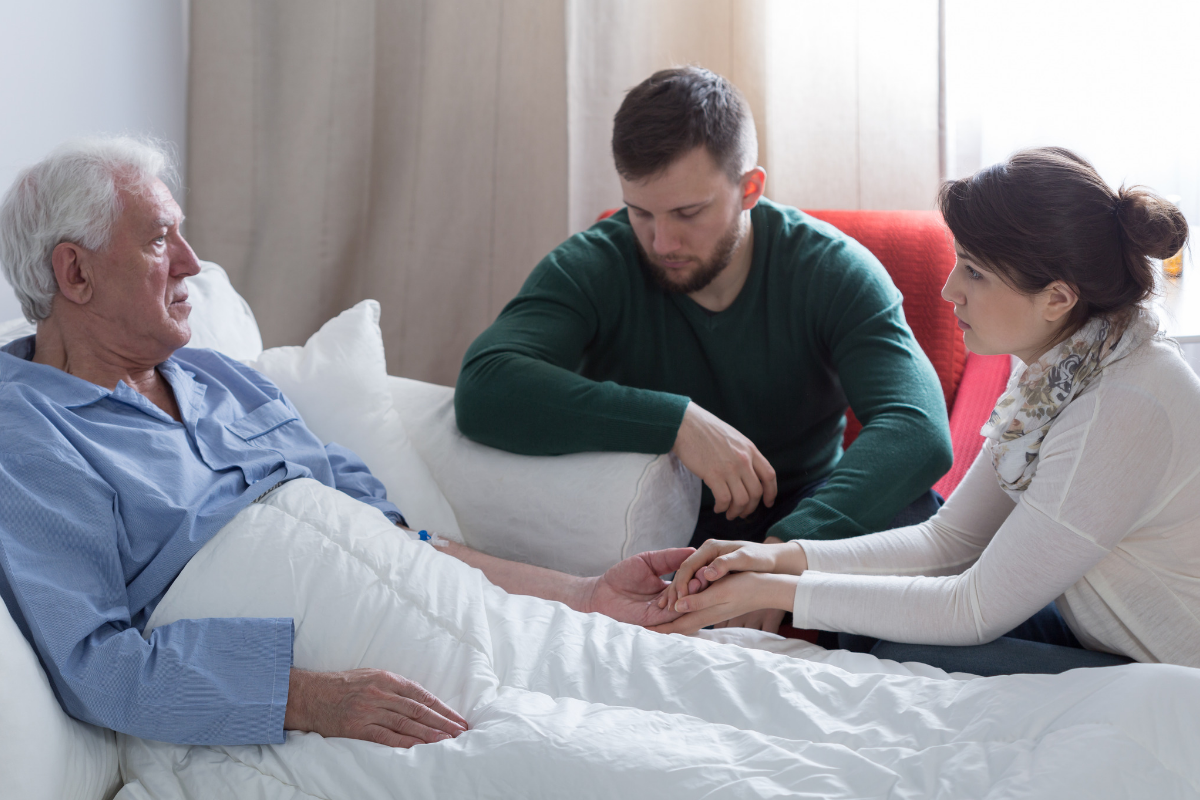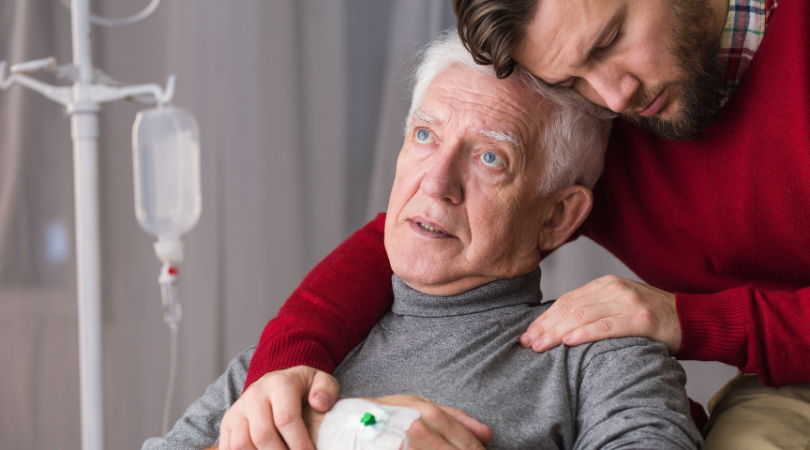Dad Wants to Die at Home

According to the Stanford School of Medicine, “studies have shown that approximately 80% of Americans would prefer to die at home, if possible.” Yet, only 20% of Americans actually have this wish honored.
If your father or another loved one wants to die at home, and you want to respect their wishes, hospice can help make it work. While dying at home may not always be possible, in most cases, family members are able to provide the care their loved one needs with the support of trained hospice staff.

What to Expect
When someone has been diagnosed with a terminal illness, it’s an emotional journey for both the patient and their family. Patients may worry that they will have a lot of pain. Hospice nurses are experts in controlling pain and other end-of-life symptoms to keep patients comfortable. Hospice aides assist with personal care including bathing and grooming. Chaplains and social workers will also visit to address any emotional or spiritual pain.
Families often expect the loss of a loved one to be dramatic, but death typically comes quietly. Body systems shut down one-by-one. Patients sleep more and have a reduced desire for food and beverages. If a crisis occurs, Crossroads Hospice & Palliative care has a dedicated on-call staff available 24 hours a day, 365 days a year to provide added support.
Get our guide to end-of-life signs and symptoms.
In addition to visits to provide care, the hospice team will also arrange to have any medical equipment, medical supplies, or medication necessary to treat the patient’s terminal illness delivered to the home at no cost to the patient or family. This can include a hospital bed, a wheelchair, incontinence supplies, and prescription medication.

Supporting the Family
Caring for a loved one is a fulfilling role, but it can also be an exhausting one – especially if you are doing it on your own. While your family can and should work together to prevent caregiver burnout, your hospice team can provide additional support and arrange for a brief respite stay for your loved one if necessary.
The hospice team is there for the family just as much as they are there for the patient. Chaplains, social workers, and bereavement counselors can help address any concerns you have. They can also connect the family with additional resources in the community including Veteran benefits and programs like Meals on Wheels.
While this support is typically enough to allow a family to honor their loved one’s wishes to die at home, occasionally, their loved one may need to be hospitalized when symptoms can not be managed at home. If this happens, the goal will be to return the patient to their home as soon as the symptoms are controlled. But the family shouldn’t blame themselves if their loved one is unable to return home after a crisis. What’s important is that the family tried their best and gave their loved one extra time at home surrounded by their love and support for as long as they possibly could.
To learn more about how Crossroads supports patients who wish to die at home, please call 1-888-564-3405.
If you found this information helpful, please share it with your network and community.
Copyright © 2019 Crossroads Hospice & Palliative Care. All rights reserved.




